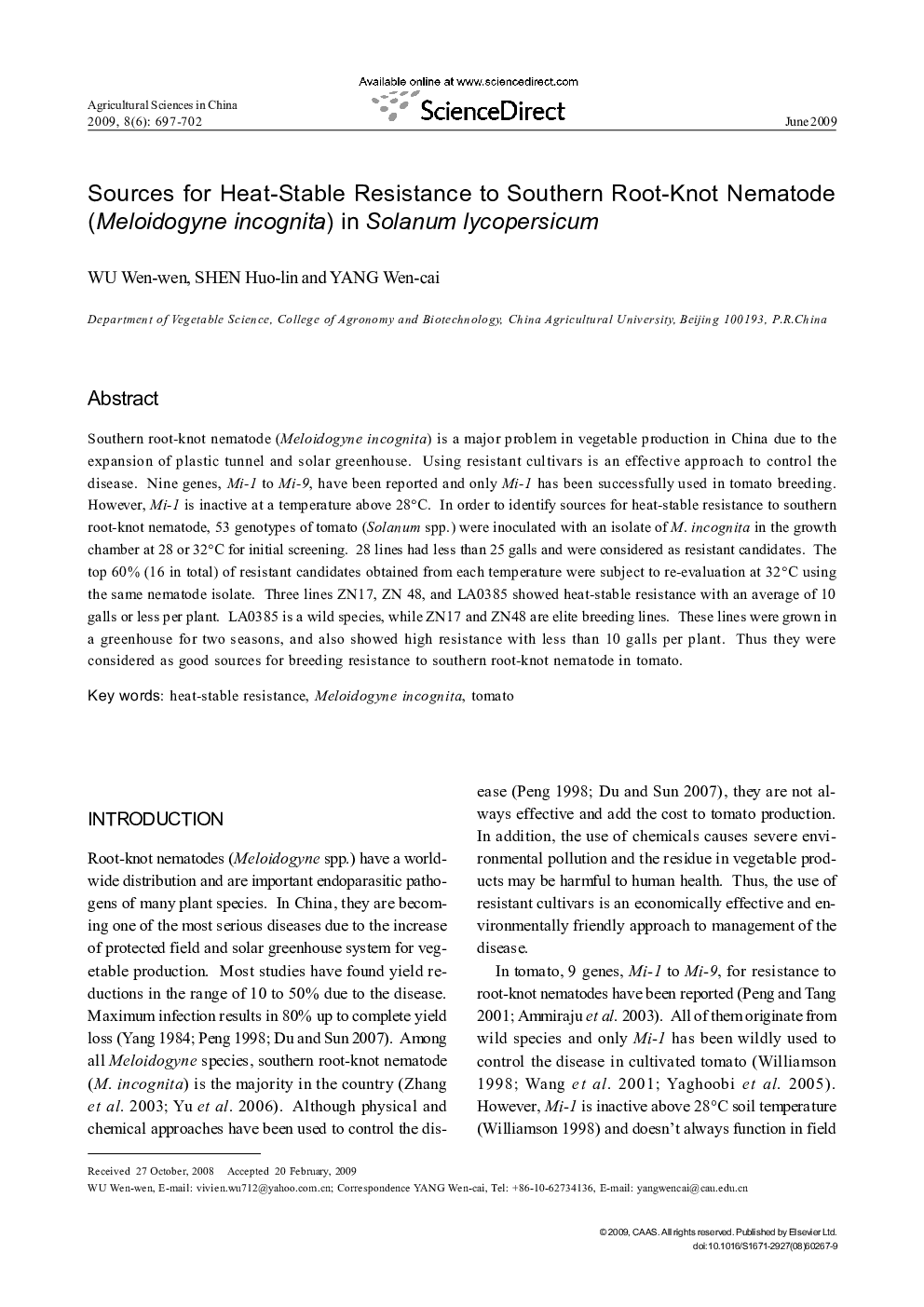| Article ID | Journal | Published Year | Pages | File Type |
|---|---|---|---|---|
| 4490446 | Agricultural Sciences in China | 2009 | 6 Pages |
Southern root-knot nematode (Meloidogyne incognita) is a major problem in vegetable production in China due to the expansion of plastic tunnel and solar greenhouse. Using resistant cultivars is an effective approach to control the disease. Nine genes, Mi-1 to Mi-9, have been reported and only Mi-1 has been successfully used in tomato breeding. However, Mi-1 is inactive at a temperature above 28°C. In order to identify sources for heat-stable resistance to southern root-knot nematode, 53 genotypes of tomato (Solanum spp.) were inoculated with an isolate of M. incognita in the growth chamber at 28 or 32°C for initial screening. 28 lines had less than 25 galls and were considered as resistant candidates. The top 60% (16 in total) of resistant candidates obtained from each temperature were subject to re-evaluation at 32°C using the same nematode isolate. Three lines ZN17, ZN 48, and LA0385 showed heat-stable resistance with an average of 10 galls or less per plant. LA0385 is a wild species, while ZN17 and ZN48 are elite breeding lines. These lines were grown in a greenhouse for two seasons, and also showed high resistance with less than 10 galls per plant. Thus they were considered as good sources for breeding resistance to southern root-knot nematode in tomato.
